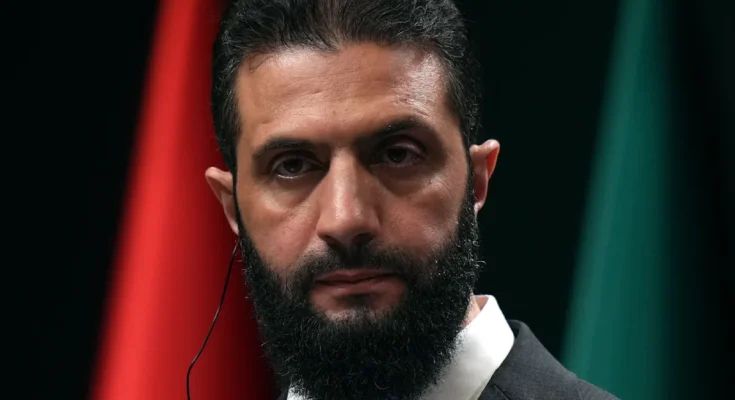No Syrian president has ever entered the White House. Donald Trump received Ahmed al-Sharaa, who came to power in Syria after the fall of Assad. To do this, America must first remove it from its terrorist list.
Nearly a year after the overthrow of Syrian ruler Bashar al-Assad, interim President Ahmed al-Sharaa and US President Donald Trump met at the White House. Since Syria’s independence in 1946, no president of the country has been welcomed to Washington. Therefore, Syrian media and cabinet members described the meeting as “historic”. Al-Sharaa is expected to announce his country’s participation in the US-led coalition to fight the Islamic State (ISIS) terrorist militia.
Trump was effusive in his praise for his guest: “I think he’s doing a very good job. It’s a tough area and he’s a tough guy, but our relationship is fine,” Trump said before the meeting. Much progress has been made, he added. Days before the visit, the White House initially lifted sanctions against al-Sharaa. The former head of the Islamist militia HTS (Haiat Tahrir al-Sham), part of which hails from al-Qaeda’s Syrian branch, has been on the US terror list since 2013.
The US even put a $10 million bounty on al-Sharaa. After Assad was overthrown by a rebel alliance led by Sharaa and when he took office, the alliance was withdrawn. According to his own statements, the interim president has left his past behind and cultivated a sophisticated image. After his arrival in Washington at the weekend, he was filmed playing basketball with top US military officers. The clip that Foreign Minister Asaad al-Shaibani shared on Instagram received thousands of likes within hours.
The US State Department said following the lifting of sanctions, progress made by the Syrian leadership following Assad’s overthrow and years of repression was recognized. Al-Sharaa works to find missing Americans, combat terrorism and drug trafficking, and create security in the region. The UN Security Council had previously lifted sanctions against al-Sharaa and Interior Minister Anas Hasan Khattab. A similar resolution from the US passed almost unanimously with 14 votes, with only China abstaining.
The ousted government also fought against ISIS and other extremists in the country. Despite having a common enemy, there is no agreement or military cooperation with the US. Washington views Assad’s government as illegitimate. The reasons include serious allegations of poison gas attacks, systematic torture and other serious crimes against its own population.
In 2014, ISIS controlled large areas of Syria and neighboring Iraq. At times he controlled about a third of Syria and 40 percent of Iraq. The US is coordinating the fight against ISIS led mainly by Kurdish militias. The terrorist organization is now considered militarily defeated – but it is estimated that around 2,500 ISIS fighters are still active in both countries and also carrying out attacks. Tens of thousands of former ISIS supporters – mainly women and children – are also being held in camps in northeastern Syria that have long been considered a breeding ground for new recruits.
The conversation between Trump and al-Sharaa will also likely discuss Syria’s relations with Israel. As part of his ambitions in the region, Trump also wants to see the normalization of relations between Syria and Israel. After announcing the lifting of US sanctions on Syria in May, he pushed for Syria to also recognize Israel.
After the fall of Assad, the new ruler signaled openness to rapprochement with Israel. Negotiations over a possible security agreement have been ongoing for months, including with US mediation. But Al-Sharaa emphasized that the agreement does not mean normalization of relations with Israel.
At war with Israel since 1948
Distrust between the neighbors runs deep: Israel and Syria have officially been at war since 1948 and a peace agreement has never been reached. Israel has also occupied the strategically important Golan Heights since the Six Day War in 1967. Israeli air attacks on military targets such as weapons depots in Syria increased after the fall of Assad. Israel justified the attacks to prevent weapons and especially chemical warfare agents from falling into the hands of extremist groups. In addition, Israeli troops advanced further into Syrian territory into a buffer zone on the Golan Heights.
During clashes in the south of the country between Sunni Bedouin groups and Druze, the Israeli military intervened temporarily on the Druze side with airstrikes. Among other things, the Ministry of Defense and military headquarters in Damascus were bombed. Al-Sharaa has repeatedly strongly condemned Israeli attacks on Syrian territory.
dpa/from



